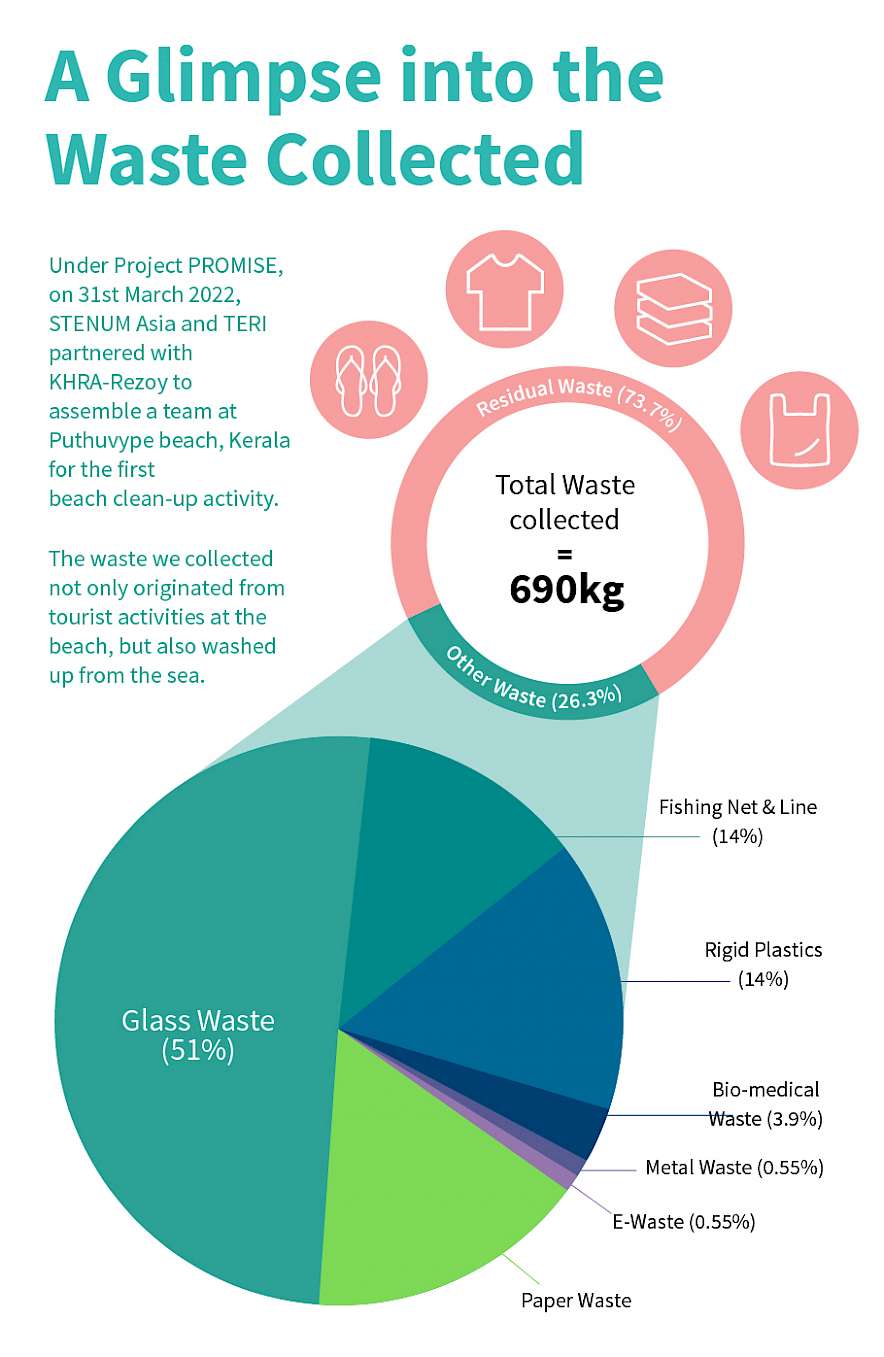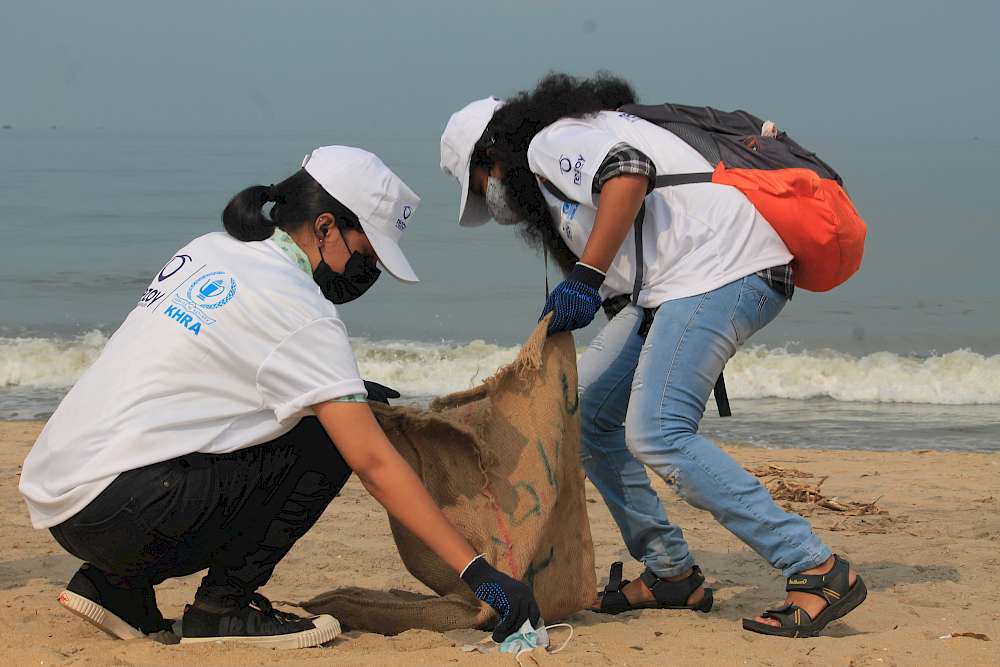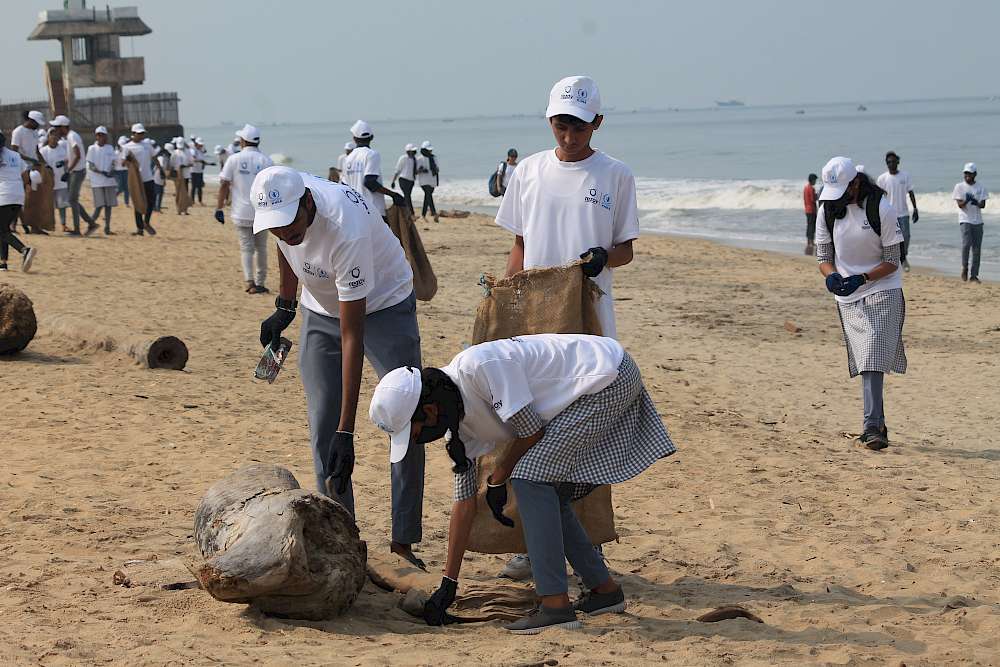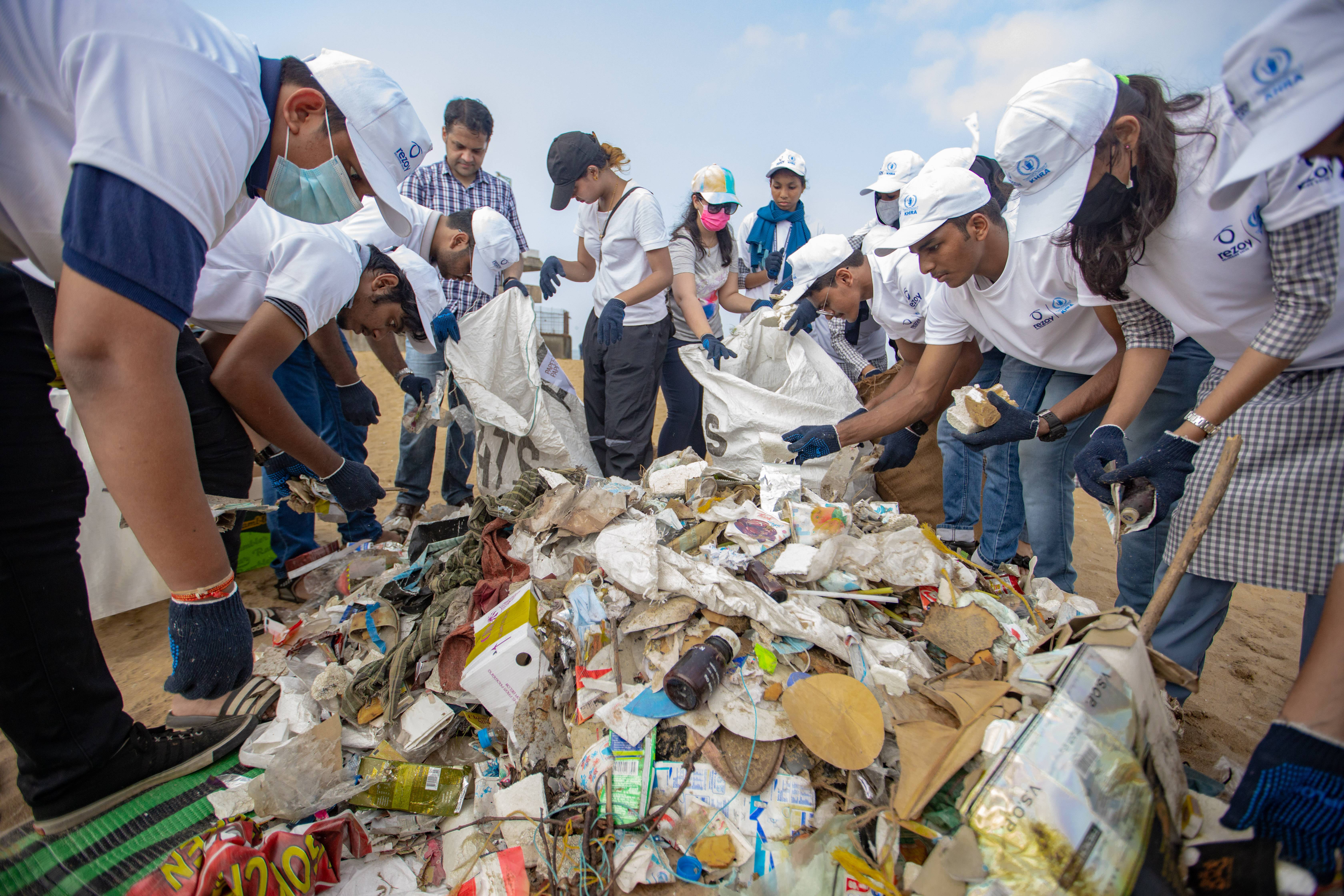
On 31st March 2022, the first beach clean-up activity under the EU SWITCH-Asia funded PROMISE Project took place at Puthuvype, Kerala in India. Nearly 200 enthusiastic volunteers from four colleges, namely, SCMS Management, SCMS Kalamassery, SCMS Architecture and MES Marampally joined the activity.
The beach clean-up efforts were coordinated by PROMISE implementing partners, STENUM Asia and The Energy and Resource Institute (TERI), with the local support of KHRA-Rezoy at Puthuvype beach, Kerala.
Mr. K Chandra N Pillai, the Chairman of Greater Cochin Development Authority (GCDA) delivered a welcome speech emphasising the importance of this project’s actions in tackling the urgent issue of marine litter on beaches. He ensured further support will be provided by GCDA to jointly tackle these issues and encouraged volunteers to take the opportunity of joining the beach clean-up as one setting the example towards sustainable living for many others. Volunteers were then briefed by the STENUM Asia team on the safety and waste-picking protocol to be followed in the designated beach clean-up area.
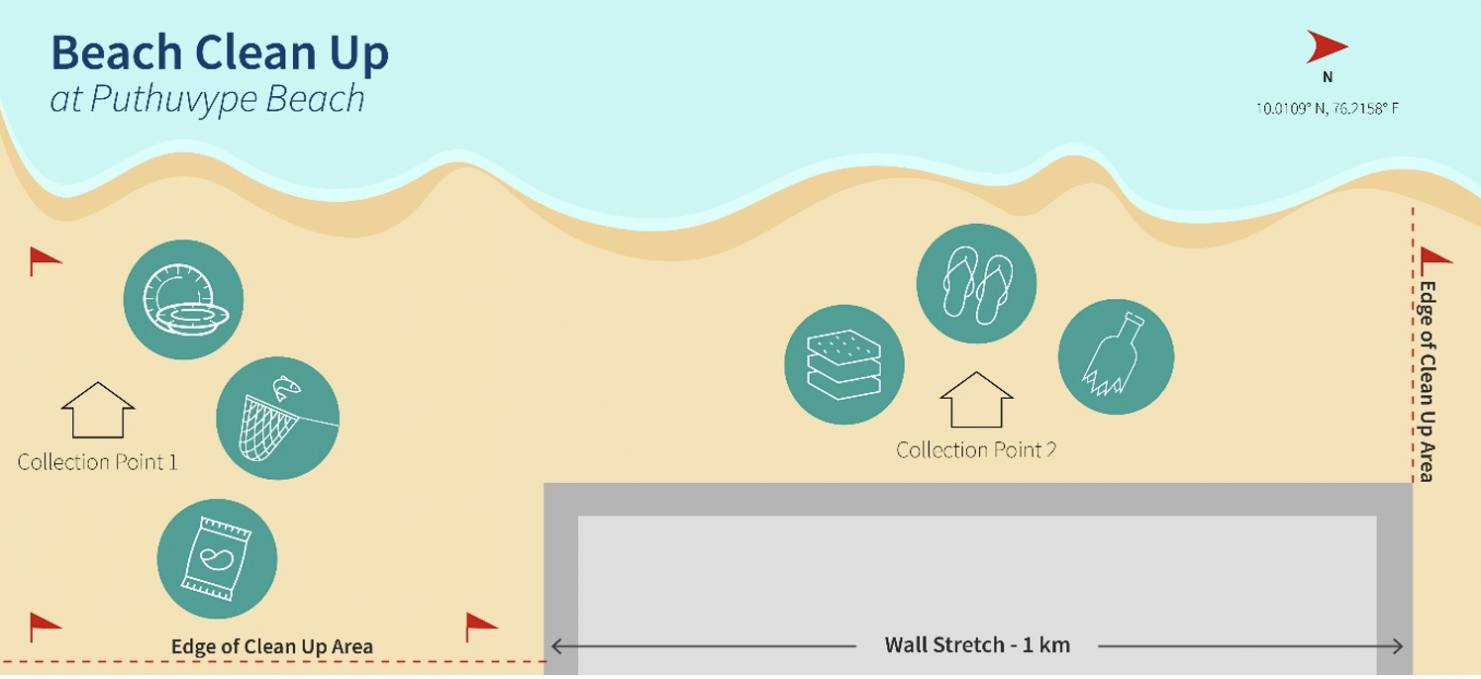
Volunteers collected 690 kg of waste which was then segregated into seven different types: rigid plastics, bio-medical waste, hazardous waste (electronic waste), broken glass waste, metal waste, paper waste and miscellaneous waste (including footwear, clothing, and residual waste). The top marine litter items found at Puthvype beach included:
- Footwear
- Glass bottles
- Paper cups
- Plastic packaging (Crisps, sweets, ice cream wrappers)
- Thermocol
- Fishing net and line
The variability in the types of wastes found near both collection points provided the team with insight into the identification of the various kinds of commercial and recreational activities ongoing at the beach.
For instance, the collection point (CP1) near the entry of the beach had accumulated 24kg of paper waste, including paper plates, paper cups, among others. The entry point is home to several food vendors and one can assume that the amount of paper littering found in this area was mainly due to littering by tourists and the lack of waste bins set around these food vendors.
Meanwhile, the second collection point (CP2) was set up away from the food stalls and further into the length of the beach. The major types of waste collected at CP2 were shoes, thermocol and glass waste. The shoes may have gotten washed away when tourists and locals went swimming, both at this beach or elsewhere and then washed up on shore when the tide came back in. Other types of wastes collected were mainly thermocol, used in fishing nets to keep them afloat.
The glass waste that was collected consisted mainly of bottles which may have washed up from the sea or might have been littered onto the beach by tourists and locals. Moreover, the recyclable items collected by the volunteers were sent for closed loop recycling.
Learnings from the first beach clean-up have equipped the STENUM Asia and TERI team with better practical insight on how to execute further clean-ups more efficiently to achieve Prevention of Marine Litter in the Lakshadweep Sea from land sources. The event was the first of many beach clean-ups held in Kerala, India that will help raise awareness about the pressing issue of marine litter in our seas and oceans.
